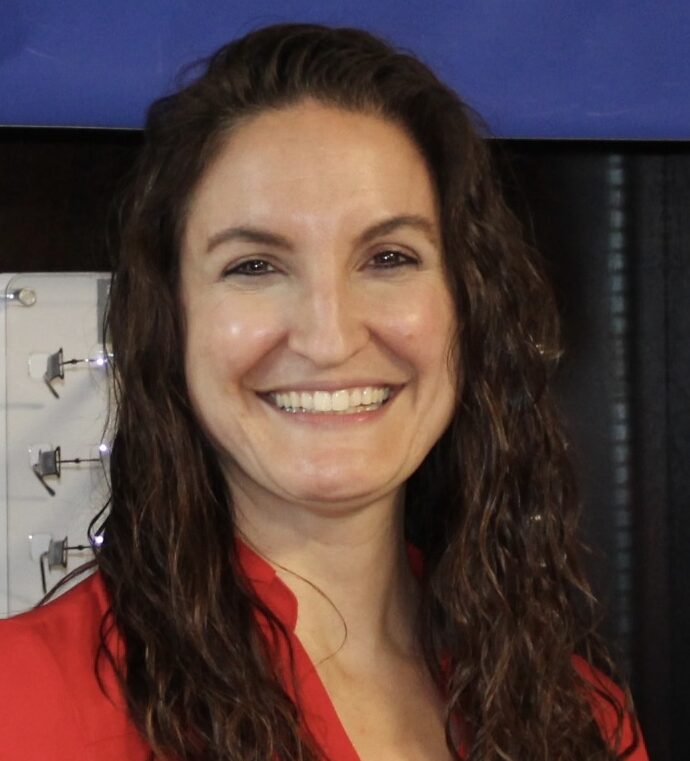When I became a Doctor of Optometry, I pledged the Optometric Oath, which includes, in part: “I affirm that the health of my patient will be my first consideration… I will work to expand access to quality care and improve health equity for all communities… I will place the treatment of those who seek my care above personal gain and strive to see that none shall lack for proper care… I will share information cordially and unselfishly with my fellow doctors of optometry and other professionals for the benefit of patients and the advancement of human knowledge and welfare.”
I hold this solemn pledge in the highest regard and it has been at the center of my tireless work in favor of SB440. At times, I wish that those in opposition to SB440 would themselves take a page from these powerful words.
In case you haven’t been following, SB440 seeks to expand the in-office procedures that doctors of optometry are able to provide in New Hampshire, and it moves greater regulation of the independent profession of optometry out of the hands of non-healthcare-provider lawmakers, and into the hands of the regulatory boards composed of healthcare providers, as is the case with other healthcare boards in the state, all while maintaining in statute definitive guardrails for protecting patient safety.
SB440 passed through the Senate with unanimous support and this week comes to the floor of the House, backed by strong two-thirds bipartisan support out of committee, including unanimous support from the subcommittee.
SB440 has had so much success and support in the legislature, because when all the facts are laid on the table, it just makes sense for the benefit of New Hampshire citizens. There are so many supporting factors to choose from:
● Ophthalmologists are in short supply in New Hampshire, having two counties without a single ophthalmologist and two counties with one ophthalmologist.
● One of the largest referral centers, Dartmouth Hitchcock Ophthalmology, has been closed to referrals due to insufficient providers, leaving a total of four ophthalmologists covering referrals for six of 10 New Hampshire counties.
● Optometrists are located in all 10 counties in New Hampshire and outnumber ophthalmologists nearly 3:1.
● Availability of ophthalmologists is projected to further decline between 2020 and 2035, while demand for medical eye care is steadily increasing, as is the availability of doctors of optometry.
● Patient access to ophthalmology is further limited by long wait times, limited participation in certain insurances, and out of pocket costs for the uninsured and underinsured.
● The in-office optometric procedures that would be permitted by SB440 are taught in every optometry school in the country, they are permitted in 12-25 states (depending which procedure), and they have been performed by optometrists in other states safely and effectively for more than 40 years.
● There is no increased risk profile for these in-office procedures whether performed by an optometrist or an ophthalmologist.
● SB440 requires that optometrists looking to be certified to perform these procedures must meet minimum requirements for classroom and lab training, examination, and minimum numbers of supervised cases on live patients, and it requires reporting the outcomes of these procedures.
● Allowing optometrists to perform in-office procedures that are within their education and training reduces patient burdens such as travel distances, wait times, duplicative visits, and costs, all while increasing availability for ophthalmologists to perform the complex surgeries that only they can provide.
● The U.S. Department of Health and Human Services has indicated “states should consider changes to their scope of practice statutes to allow all health care providers to practice to the top of their license, utilizing their full skill set.”
While there is no shortage of fact-based reasons to support SB440, the only arguments in opposition to SB440 are those based in fear. Organized ophthalmology has used the same tactic as they have for every single attempt at optometric advancement in the last 50 years: unfounded claims of threats to patient safety. Whether it was the authority to use eye drops to dilate pupils, the authority to prescribe antibiotics, the authority to prescribe steroid eye drops, or the authority to treat glaucoma, ophthalmology has threatened that patients would be blinded or even killed at the hand of optometry every step along the way.
None of these fear-mongering, cataclysmic projections have ever held true. On the contrary, each advancement has resulted in increased access to quality eye care. In fact, nationwide, there has never been a single rolling back of optometric privileges in any state at any time.
As an optometrist who has advocated for the profession and for patient access to care since my days in optometry school, I have become accustomed to hearing these baseless claims time and again. Afterall, the American Medical Association promotes a nationwide campaign, #StopScopeCreep, that aims to stop advancements of ANY healthcare providers who do not have the MD degree. Healthcare does not stand still, and halting advancements in the delivery of care is a detriment to patients.
In my work with SB440, I have personally sat across the negotiating table from my ophthalmology counterparts, filled with naïve optimism that as professionals with common goals of patient care and access, we might be able to find compromise. My optometric colleagues and I came prepared with multiple concessions, only to be met each time with the same line in the sand that had been handed down from their national organization.
In hearings we have been referred to as ‘amateurs’ and one ophthalmologist openly stated in testimony that his greatest legacy would be to prevent optometric advancement. Furthermore, a single patient who suffered a negative outcome of an optometric procedure, the same negative outcome which has occurred at the hand of ophthalmologists as well, is not reflective of the actual experience of many years of safe and effective outcomes.
As the state representatives are contemplating their vote this week, they will have to set aside the fear tactics and look to the facts, just as the legislators before them have done. Regardless of the outcome of SB440 this week, I will be prepared to hold to my oath: To put patients first; to work for expanding access to care; and to selflessly collaborate with other professionals for the benefit of the patient. I hope the opposition will do the same.




